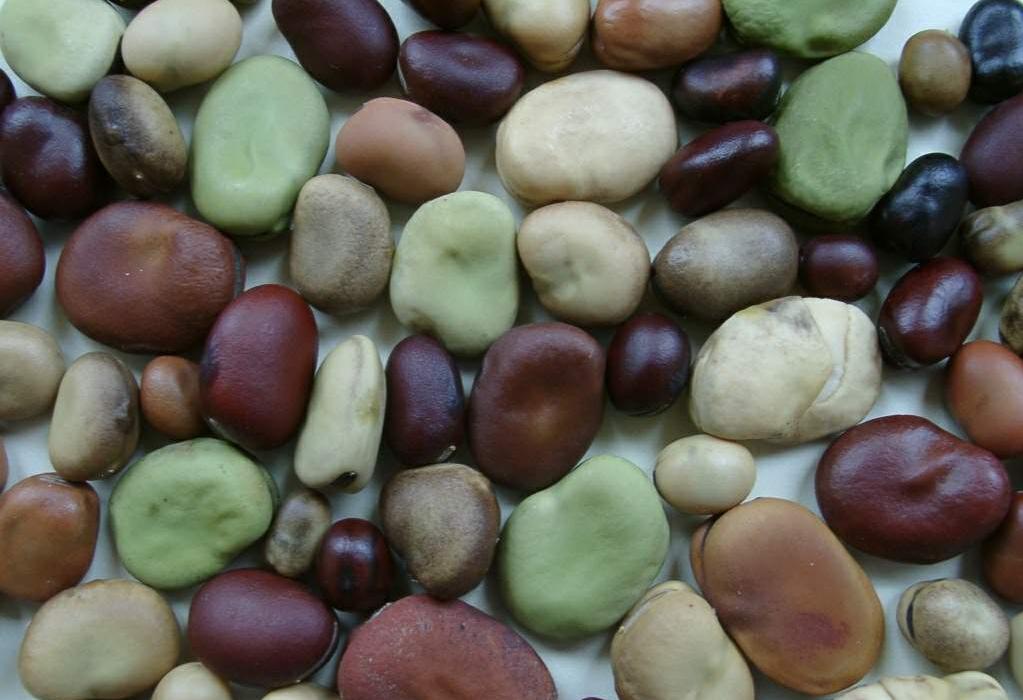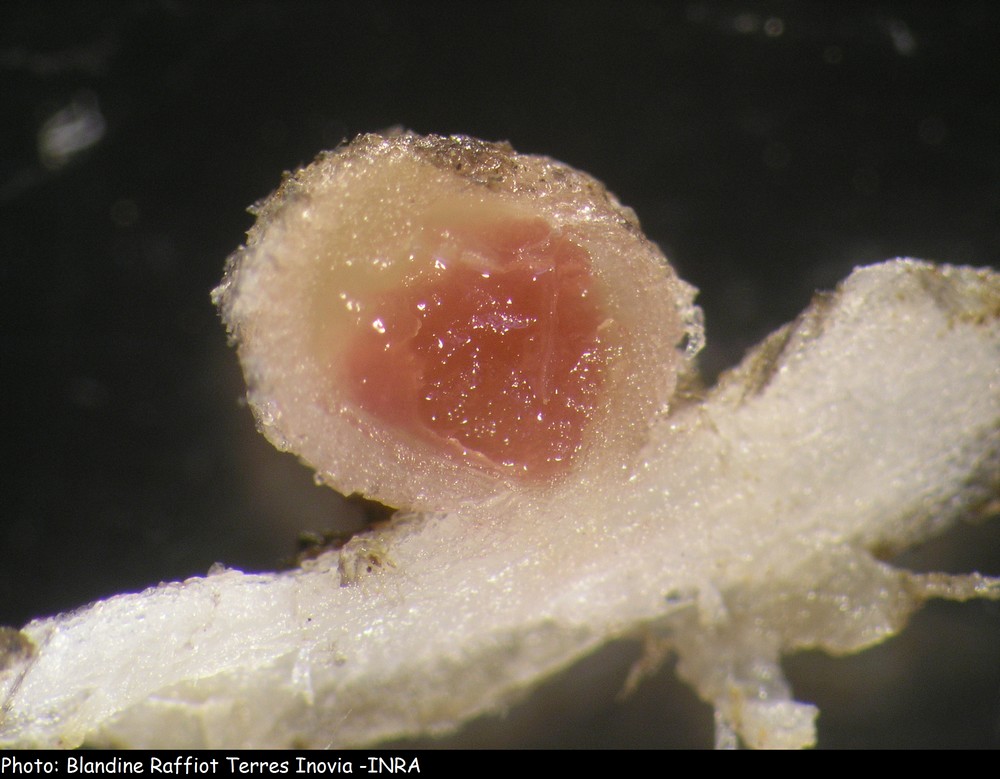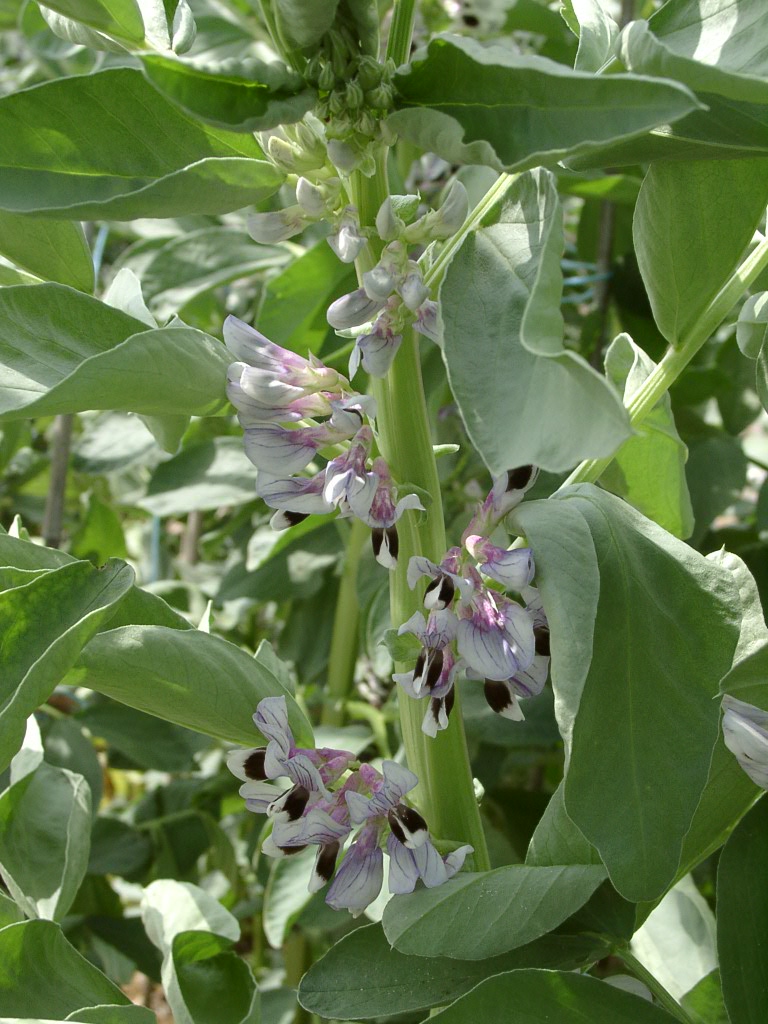Developing improved Vicia faba breeding practices and varieties to drive domestic protein production in the European Union

Source: Stig Uggerhøj Andersen
Currently Europe produces only about 30% of the plant protein needed for supplementary protein in feed, resulting in import of 40 million tonnes of soya bean and soya meal per year (Watson et al. 2017). This imbalance in the European agricultural system is due to the lack of an economically competitive grain legume protein crop that can match cereals for farmer profits. The current system dominated by cereals is not sustainable since it enforces vast protein imports and requires large supplements of energy-expensive mineral fertilizers, since cereals, unlike legumes, are not able to fix nitrogen.
The ProFaba project aims to boost protein production in Europe by improving faba bean (Vicia faba) as a European protein crop, thereby markedly contributing to a more balanced and protein-self-sufficient agricultural system. There is currently a growing interest in faba bean, and several national projects have been launched to drive the much-needed acceleration of faba breeding, including NORFAB, Papugeno, BEANS4N.AFRICA, PeaMUST, and Abo-Vici. At recent international meetings, researchers from all of these programs discussed current activities and identified complementary areas of expertise as well as common goals. As a result, the ProFaba ERA-NET project will bring partners together with complementary expertise in genomics, bioinformatics, quantitative genetics, insect resistance, disease resistance, abiotic stress tolerance, nitrogen fixation, field phenotyping, breeding, and climate and phenological modeling to tackle the main obstacles to faba bean success as a protein crop.

Source: Stig Uggerhøj Andersen
Taking a collaborative approach focusing on common resources, ProFaba will build a common reference and data repository for faba genome, genotype, and phenotype data, ensuring easy communication throughout the faba community. ProFaba will leverage these resources by developing common diversity panels and breeding lines, which will be phenotyped for agronomic traits in five different locations from the South to the North of Europe. This will allow deciphering the genomic architecture of faba traits, understanding genotype by environment interactions, and direct incorporation of this knowledge into active, predictive breeding programs through the participating breeders from Denmark, Germany, France and Spain. ProFaba project results will additionally be disseminated through breeder and grower conventions to the wider group of stakeholders as well as through scientific publications and conferences.

Source: Stig Uggerhøj Andersen
ProFaba will focus on the most critical faba traits across Europe, and phenological and climate change models will be used to understand and predict future breeding targets for specific regions. ProFaba will work with both spring- and autumn-sown material to understand genetic differences and improve frost tolerance of autumn-sown germplasm, which could lead to rapid changes in management practices and increased yield in colder climates. Low soil pH restricts the growth of faba bean in wet climates, and ProFaba will establish the genetics and physiology underlying faba acid-soil tolerance to enable its manipulation in practical breeding. To drive reduction in pesticide use, and thus promote faba bean ecosystem services for pollinators, ProFaba will perform multi-location testing of bruchid-resistant germplasm and map the alleles associated with resistance. As an additional strategy to ameliorate the effects of pollinator decline, ProFaba will dissect and understand autofertility, which allows persistent high yield in the absence of cross-pollination. In terms of resource use efficiency, biological nitrogen fixation through symbiotic interactions with rhizobia is a critical but poorly understood trait. ProFaba will address this by identifying faba bean germplasm, which effectively selects for efficient nitrogen fixing rhizobia, and by taking the first steps in establishing efficient nitrogen fixation as a breeding target.

Source: Stig Uggerhøj Andersen
Dr Stig Uggerhøj Andersen
Aarhus University, Dept of Molecular Biology and Genetics, DENMARK
Email: sua@mbg.au.dk
Prof Frederick Stoddard
University of Helsinki, Department of Agricultural Sciences, FINLAND
Prof Wolfgang Link Georg-August
Universität Göttingen, Department of Crop Sciences, GERMANY
Dr Ana M. Torres
IFAPA, Area Genómica y Biotecnología, SPAIN
Dr Nadim Tayeh
INRA, UMR, Agroécologie, FRANCE
Prof Donal O'Sullivan
University of Reading School of Agriculture, Policy and Development, UK
Dr Sheila Alves
Teagasc, Crops Research, IRELAND
Dr Ignacio Solis
Agrovegetal, SPAIN
Linda K. Nielsen
Sejet Plant Breeding, DENMARK
Dr Olaf Sass
Norddeutsche Pflanzenzucht Hans-Georg Lembke KG, GERMANY
Dr Françoise Labalette
GSP (Groupement des Sélectionneurs des Protéagineux), FRANCE
Jayakodi, M., Golicz, A. A., Kreplak, J., Fechete, L. I., Angra, D., Bednář, P., Bornhofen, E., Zhang, H., Boussageon, R., Kaur, S., Cheung, K., Čížková, J., Gundlach, H., Hallab, A., Imbert, B., Keeble-Gagnère, G., Koblížková, A., Kobrlová, L., Krejčí, P., Mouritzen, T. W., and Andersen, S. U. (2023). The giant diploid faba genome unlocks variation in a global protein crop. Nature, 615(7953), 652–659.
Skovbjerg, C. K., D. Angra, T. Robertson-Shersby-Harvie, J. Kreplak, G. Keeble-Gagnère, S. Kaur, W. Ecke, A. Windhorst, L. K. Nielsen, A. Schiemann, J. Knudsen, N. Gutierrez, V. Tagkouli, L. I. Fechete, L. Janss, J. Stougaard, A. Warsame, S. Alves, H. Khazaei, W. Link, A. M. Torres, D. M. O’Sullivan, and Andersen, S. U. (2023) Genetic analysis of global faba bean diversity, agronomic traits and selection signatures. Theoretical and Applied Genetics, 136 (5), 114
Mendoza-Suárez, M., Akyol, T.Y., Nadzieja, M., and Andersen, S. U. (2024) Increased diversity of beneficial rhizobia enhances faba bean growth. Nat Commun, 15, 10673.
Twitter: https://twitter.com/ProFaba_SusCrop